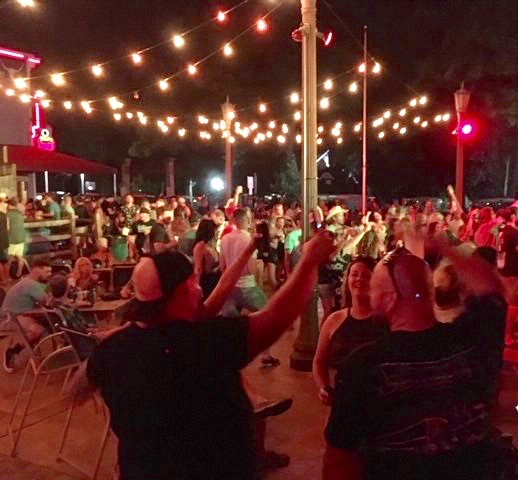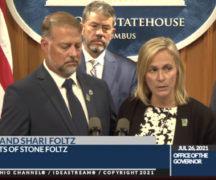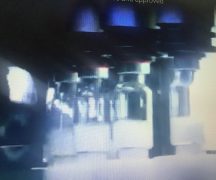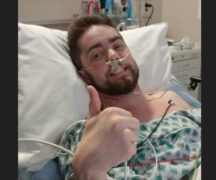With a pandemic worsening at an accelerating clip, a bipartisan group of state Senators is trying to lift restrictions cutting off bar sales at 10 p.m. statewide.
On July 31, the Ohio Liquor Control Commission — at the behest of Gov. Mike DeWine — issued an emergency rule prohibiting liquor permit holders from selling alcohol after 10 p.m. and allowing the consumption of alcohol on site after 11 p.m.
The rule, which has been adopted in other states as well, was implemented on the theory that binge drinking accelerates at a certain hour in the night, and people are more likely to exhibit higher risk COVID-19 behaviors while intoxicated.
Senate Bill 374 would reverse the curfew and prevent any disciplinary actions resulting from a permit holder’s alleged violation of the rule.
“Ohio’s restaurants and bars have suffered immensely from the restrictions placed on their industry during the COVID-19 pandemic,” said Senate President Larry Obhof, R-Medina, in a statement. “In order to survive, we have seen them step up during this crisis and find innovative ways to safely serve their customers and keep hundreds of thousands of Ohioans employed.”
The proposal comes amid a state and national case surge. More Ohioans contracted COVID-19 last week than in any single week during the pandemic.
More than 1,200 Ohioans are currently in the hospital with COVID-19, a record high. More than 17,000 have been hospitalized since March. At least 5,083 have died, though research published Tuesday by the CDC suggests this is a significant underestimation.https://platform.twitter.com/embed/index.html?creatorScreenName=https%3A%2F%2Ftwitter.com%2Fjake_zuckerman&dnt=true&embedId=twitter-widget-1&frame=false&hideCard=false&hideThread=false&id=1318615169644322817&lang=en&origin=https%3A%2F%2Fohiocapitaljournal.com%2F2020%2F10%2F21%2Fcoronavirus-is-surging-and-a-bipartisan-state-senate-wants-to-lift-the-bar-curfew%2F&siteScreenName=OhioCapJournal&theme=light&widgetsVersion=ed20a2b%3A1601588405575&width=550px
State Republicans have repeatedly and unsuccessfully targeted DeWine’s COVID-19 response policies by allowing counties to opt out of health orders, requiring written consent for contact tracing, and lifting all penalties for flouting health orders.
SB 374 marks the first time Democrats have joined with Republicans on the issue. Four Democrats and 16 Republicans are signed on as cosponsors.
Bars are not a safe place to be during a respiratory virus pandemic. They’re indoors, people stand shoulder-to-shoulder (despite the rules) and don’t wear masks while drinking. The coronavirus can spread through hosts who don’t show symptoms, and numerous super-spreading events have traced to bar outbreaks.
However, the pandemic and ensuing government responses like shutdowns, curfews and capacity limits have gutted the industry. More than half of the state’s restaurants said in an Ohio Restaurant Association survey they could close permanently.
In an interview, Senate Minority Leader Kenny Yuko, D-Richmond Heights, said these businesses are getting pummeled by the pandemic and government restrictions, and the rent isn’t getting any cheaper.
“With this pandemic, we have to recognize that it’s not going to go away,” Yuko said. “These people have been savagely beaten down.”
Yuko said most bars aren’t stuffing patrons in and put in an honest effort toward operating safely. He declined to answer when asked if he thought bar behavior or culture changes closer to midnight.
“Despite all of our best attempts, we can’t stop it,” he said. “So all we can try to do is do the right thing.”
Democratic Senator Cecil Thomas told WKRC news he doesn’t believe bars and restaurants are to blame for an increase in COVID-19 infections.
Speaking to reporters, DeWine said he opposes the idea of lifting the bar curfew and called it “irresponsible,” given the surge in cases. He said he’s working on a proposal to provide a financial bailout for the industry but opposes SB 374.
“With those numbers going crazy, this is not something we can do right now,” he said Tuesday.
Yuko declined to answer whether he’s prepared to vote to override a veto from DeWine, and said he’d need to see the details of any proposed financial relief package. Obhof, through a spokesman, did not respond to an interview request.
While the industry and legislative political power supports lifting the curfew, public health experts say bars are unequivocally not safe places during a pandemic.
Dr. Anthony Fauci, the top infectious disease expert at the National Institutes of Health, told a U.S. Senate Committee this summer that bars, especially indoors, are a bad idea.
“Bars, really not good. Really not good,” Fauci said. “Congregation at a bar, inside, is bad news. We really got to stop that right now.”
CDC research from September found that people who contracted COVID-19 were twice as likely as those in a control group to have gone to a restaurant in the two weeks before becoming ill. They were also more likely to have gone to a bar or coffee shop.
When the curfew was implemented in July, the Ohio Department of Health said it knew of 50 outbreaks that traced back to bars and restaurants.
However, the figure is likely an undercount because the 20-year-old Ohio Disease Reporting System cannot be mined for information like where infections are believed to have occurred.
“Anything that we would be able to pull in ODRS would not be an accurate picture and again we would have to go through each individual case to see if going to a bar/restaurant is mentioned since ODRS does not have a search mechanism,” said ODH Spokeswoman Melanie Amato in an email.
More than 230 bars have been cited by the Ohio Investigative Unit for violating the “Dine Safe Ohio” order limiting capacity and requiring social distancing as of Wednesday morning.





